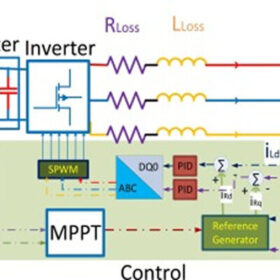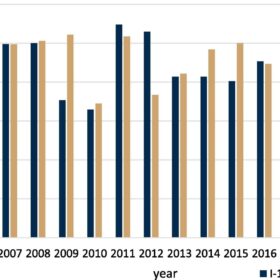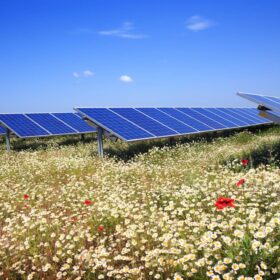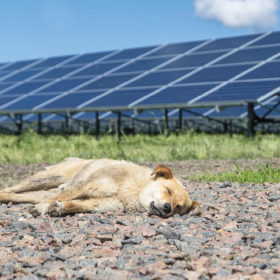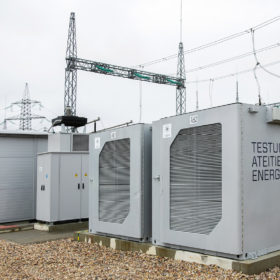Master-slave technique for deploying parallel inverters in PV systems
Scientists in Czechia have proposed to use parallel inverters in PV systems to not only reduce instability, but also to increase power yield. The proposed approach reportedly results in higher maximum power point tracking (MPPT) performance.
War in Ukraine triggered unique phase in renewables history
Human Geographer Thilo Wiertz speaks to pv magazine on the particular features that characterised the trajectory of renewable energies after the outbreak of the war in Ukraine. He emphasised how the geopolitical tensions arising from this conflict have reshaped the political debate about the energy transition, with the energy security perspective gaining in importance.
Green Gravity signs deal to roll out energy storage tech in Romania
Australian energy storage startup Green Gravity will explore opportunities to deploy its gravitational energy storage technology in Europe after inking an agreement with the Romanian state-owned energy company Complexul Energetic Valea Jiului SA.
Impact of solar module soiling on grid-forming inverters
New research from Serbia claims air-polluted urban climatic conditions may not only induce maximum power point (MPP) tracking problems in PV systems but also reduce power yield by up to 30%. The scientists also said that soiling may significantly affect the functionality of single-stage inverters operating in grid-forming mode.
Researchers assess degradation in PV systems older than 15 years
Scientists have used the US National Renewable Energy Laboratory’s (NREL) HOMER software to calculate the degradation of solar panels deployed in two rooftop PV systems operating in Germany since 2003. Their calculations focused on the energy productivity of the systems.
Building nature-friendly solar parks
Hungarian company SolServices has published a white paper outlining ways to make solar farms more compatible with nature and wildlife, from insects and amphibians to birds, bats, rodents and big game.
Sodium-ion battery anode made from toxic hogweed
Russian researchers have transmuted poisonous Sosnowsky’s hogweed into high-grade anode material for sodium-ion batteries. The obtained material has a Coulombic efficiency of 87%, which is on par with the best reported results for hard carbons synthesised from other raw materials.
Weekend read: Darkest hour before Ukraine’s solar dawn
Ukraine is still facing dire circumstances, with war continuing to claim lives and Russian invaders occupying large parts of the country. Solar plant owners also face serious challenges, including collateral damage, looting, destruction of communication infrastructure, and payment shortfalls. However, a bold vision for recovery has been set out with a key role for solar, as Ian Skarytovsky reports.
Weekend read: Dawn of virtual transmission
Quick and versatile, batteries are providing a growing number of services to homes, businesses, and on the grid. Electricity network operators are beginning to adopt grid-scale batteries, with the initial applications potentially opening the way for renewable energy to flow more freely and across larger distances than ever before.
Dye-sensitised photocatalyst promises most efficient solar water splitting to date
Japanese researchers have developed a new way to improve water splitting, while South Korea has completed its largest hydrogen production complex. Scotland and England have announced new hydrogen investments, and Uzbekistan and Saudi Arabia’s ACWA Power have agreed to collaborate on hydrogen projects.
